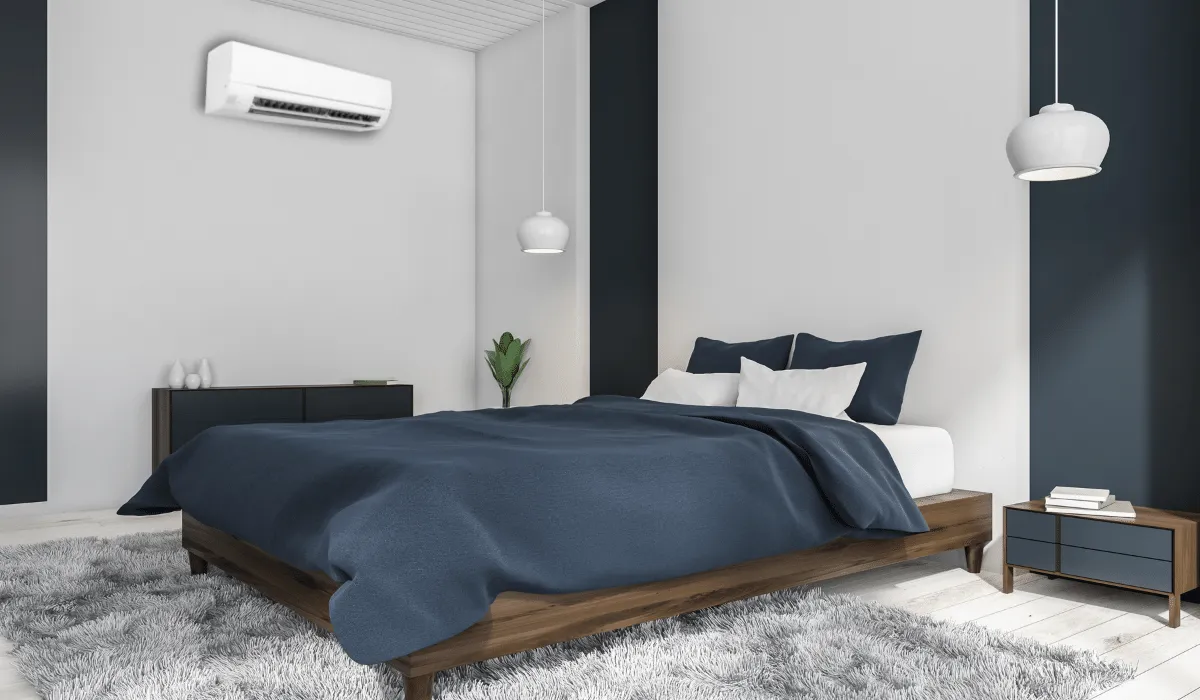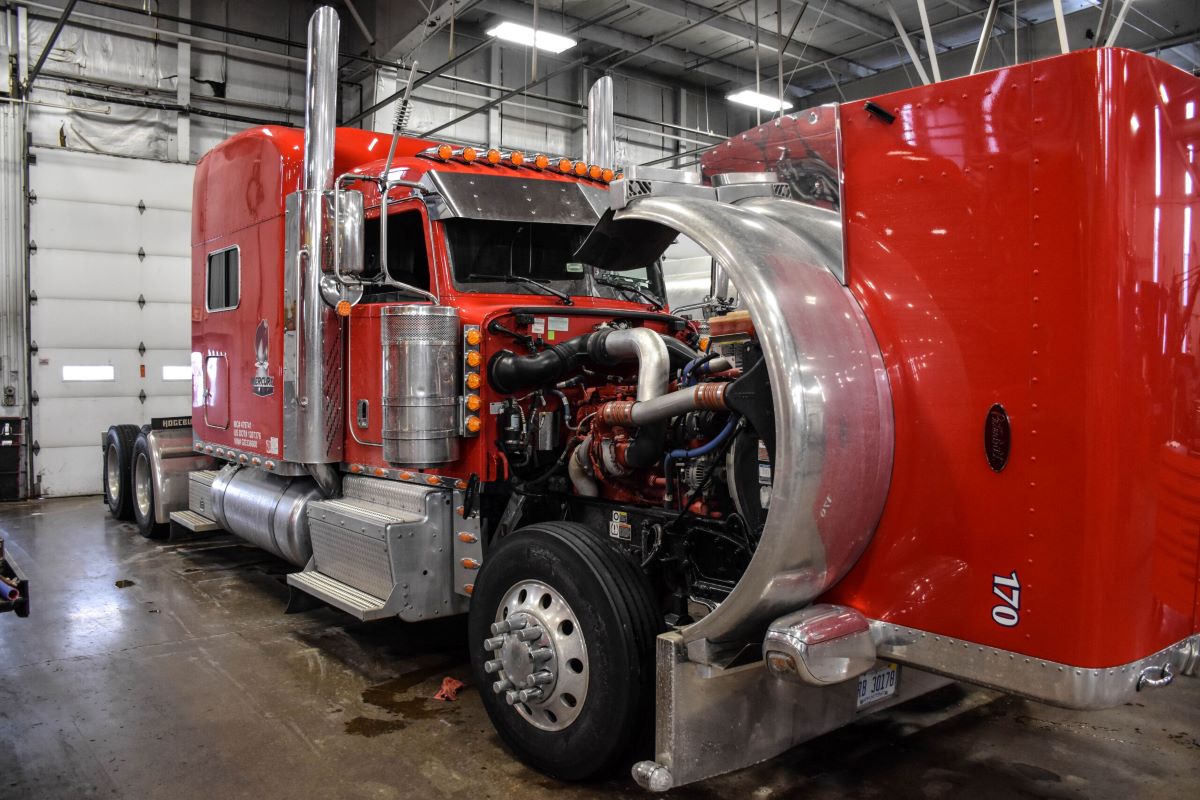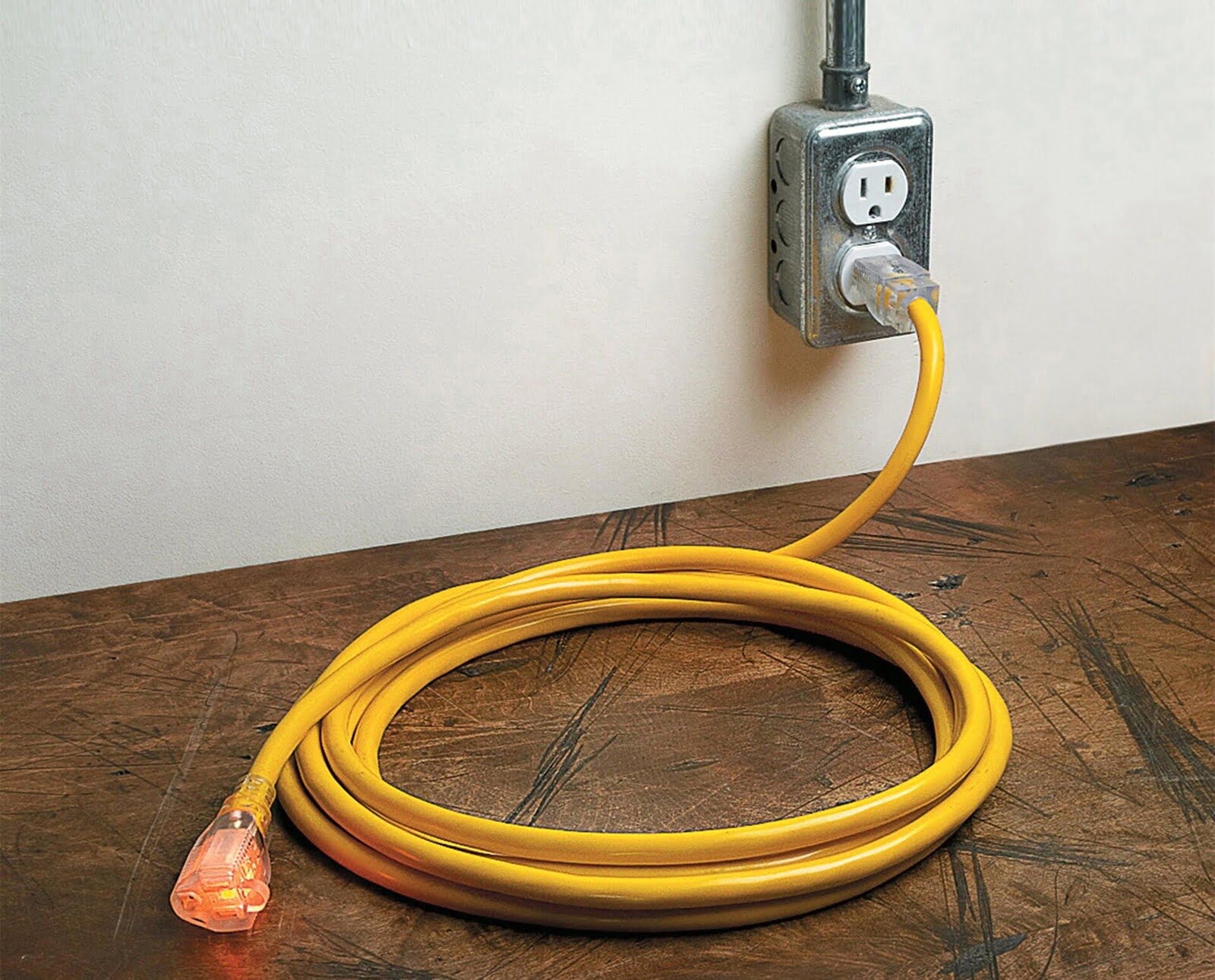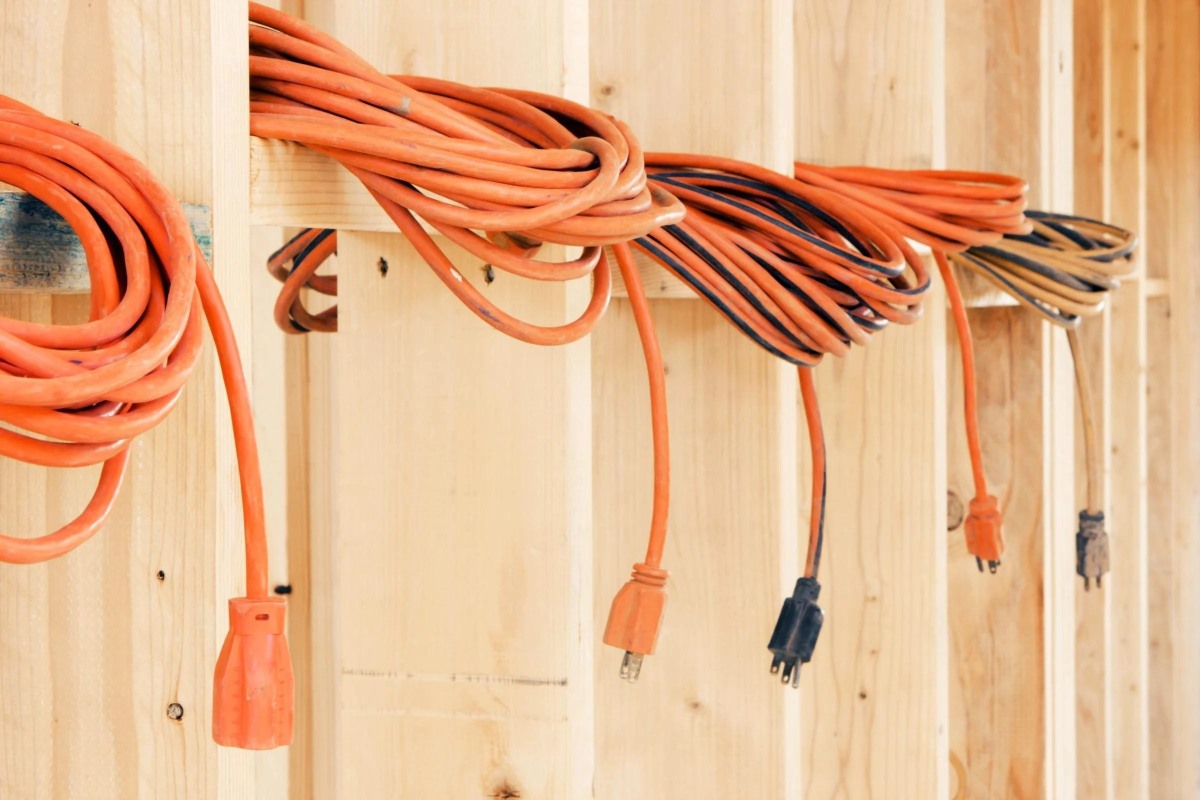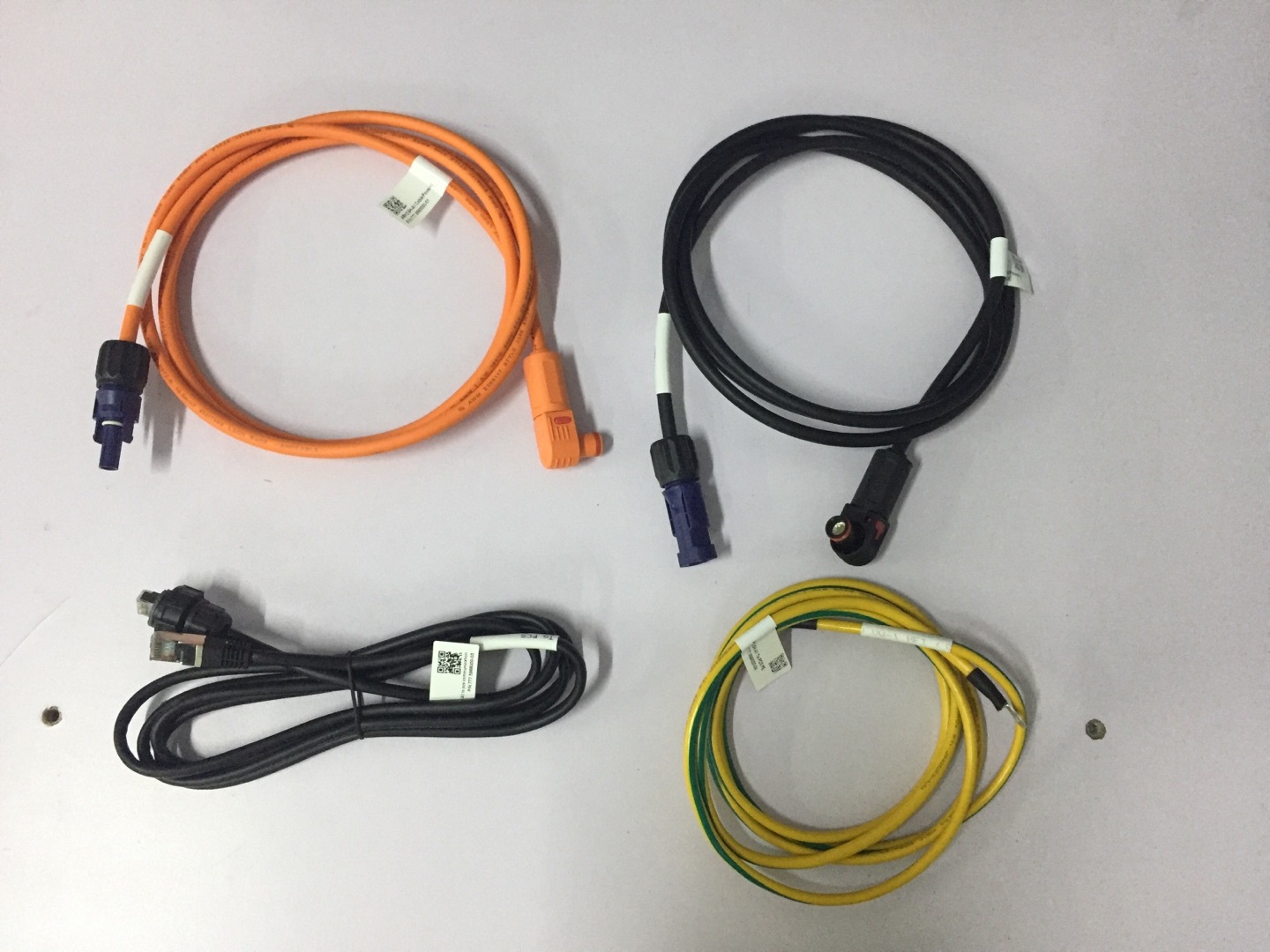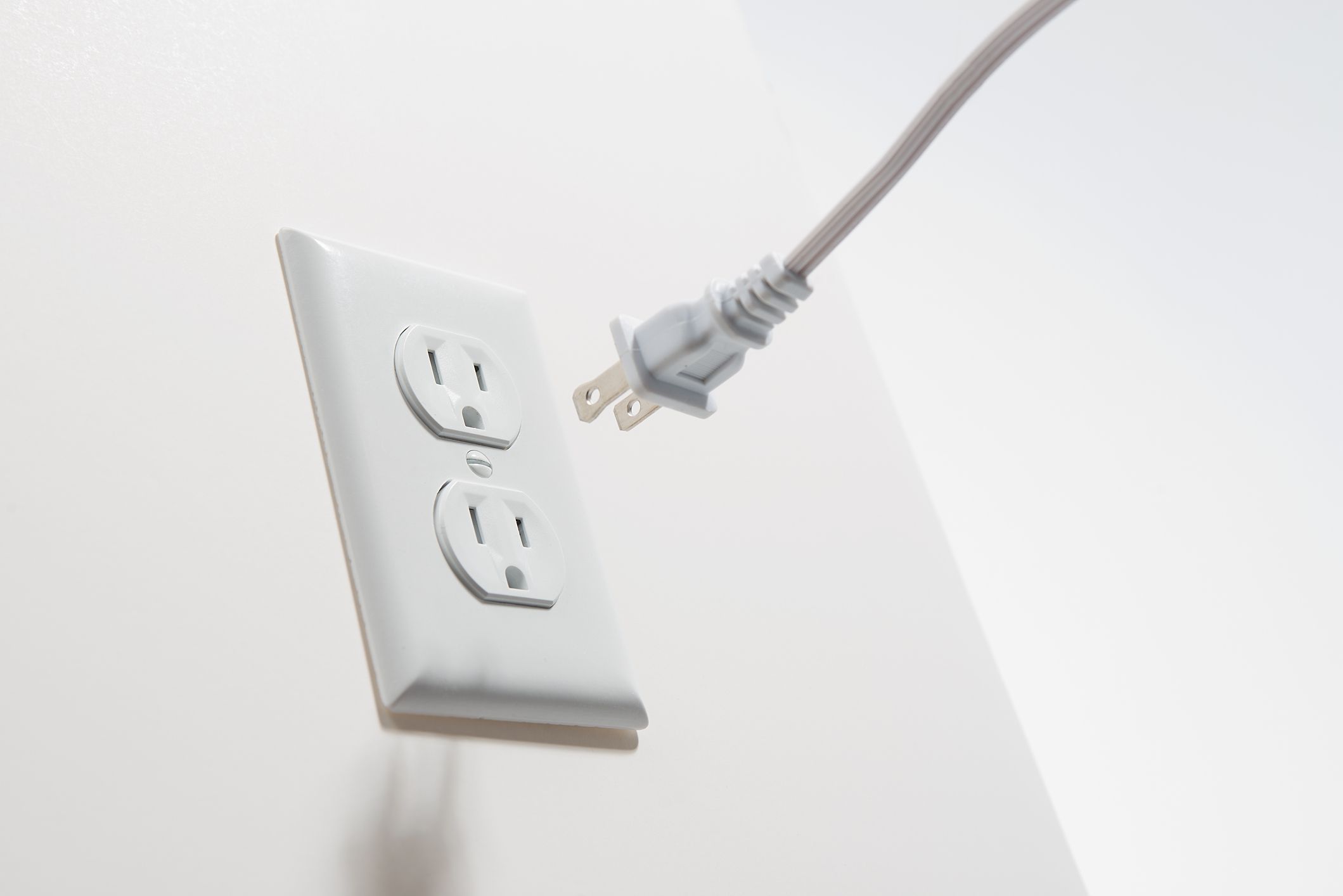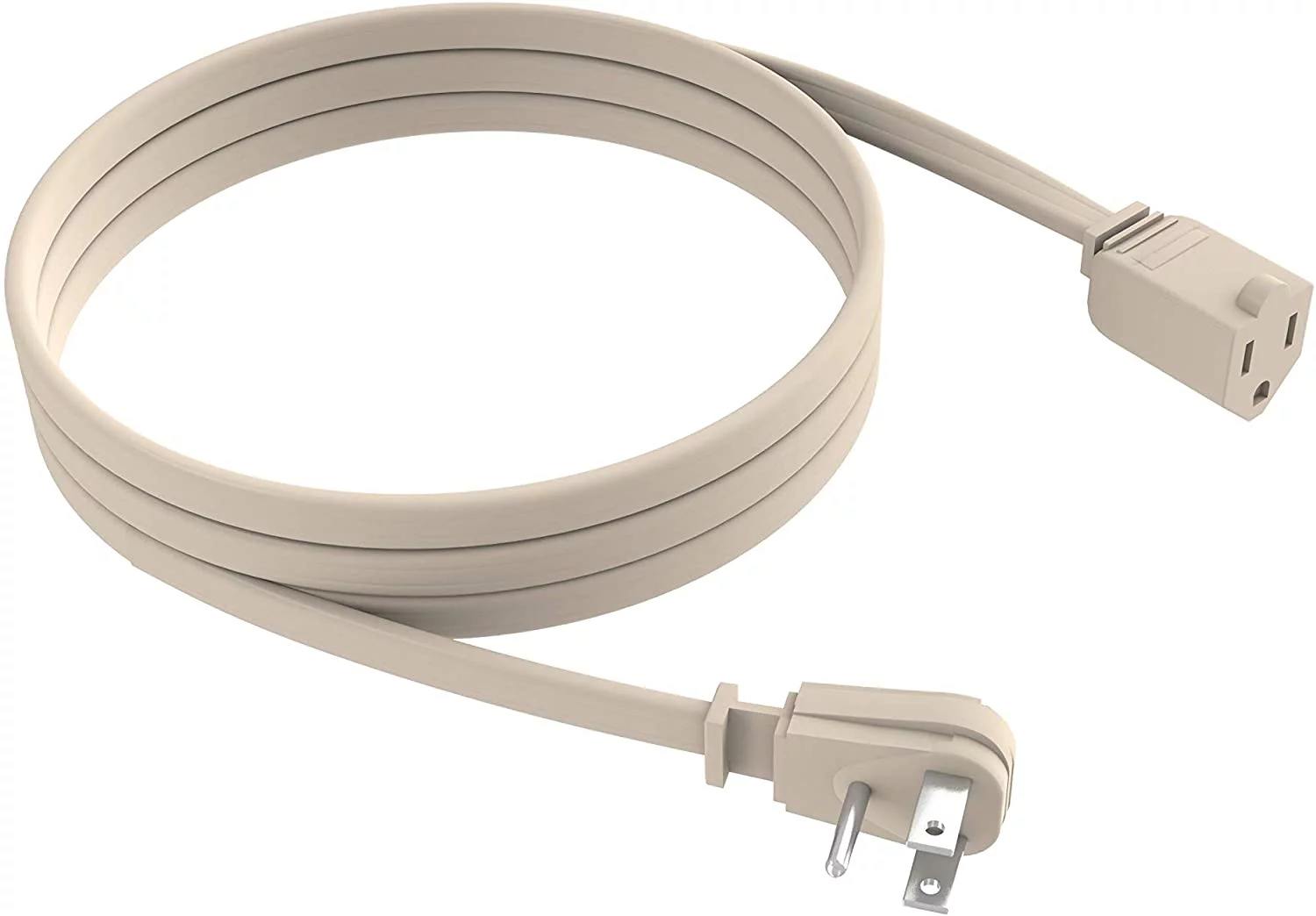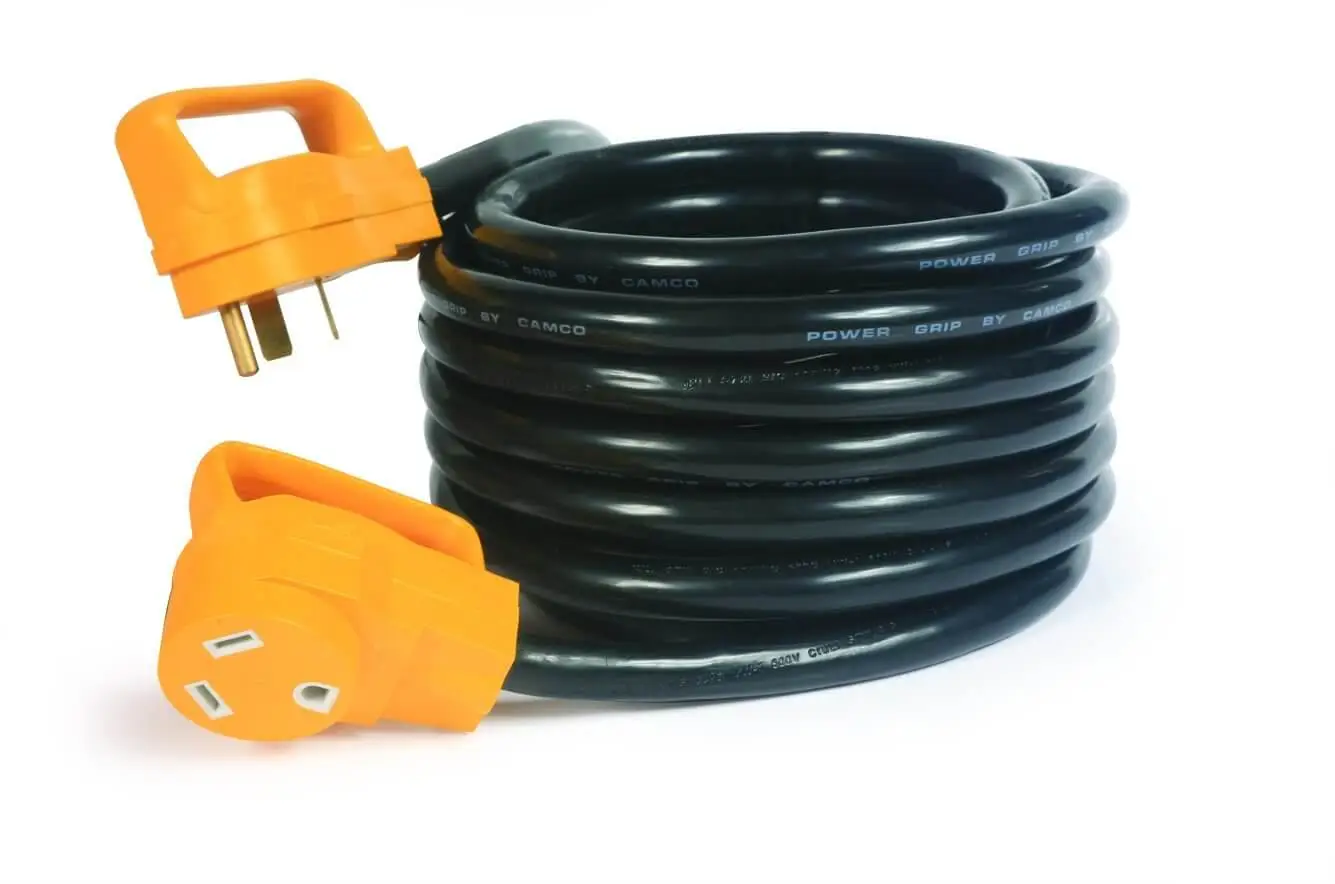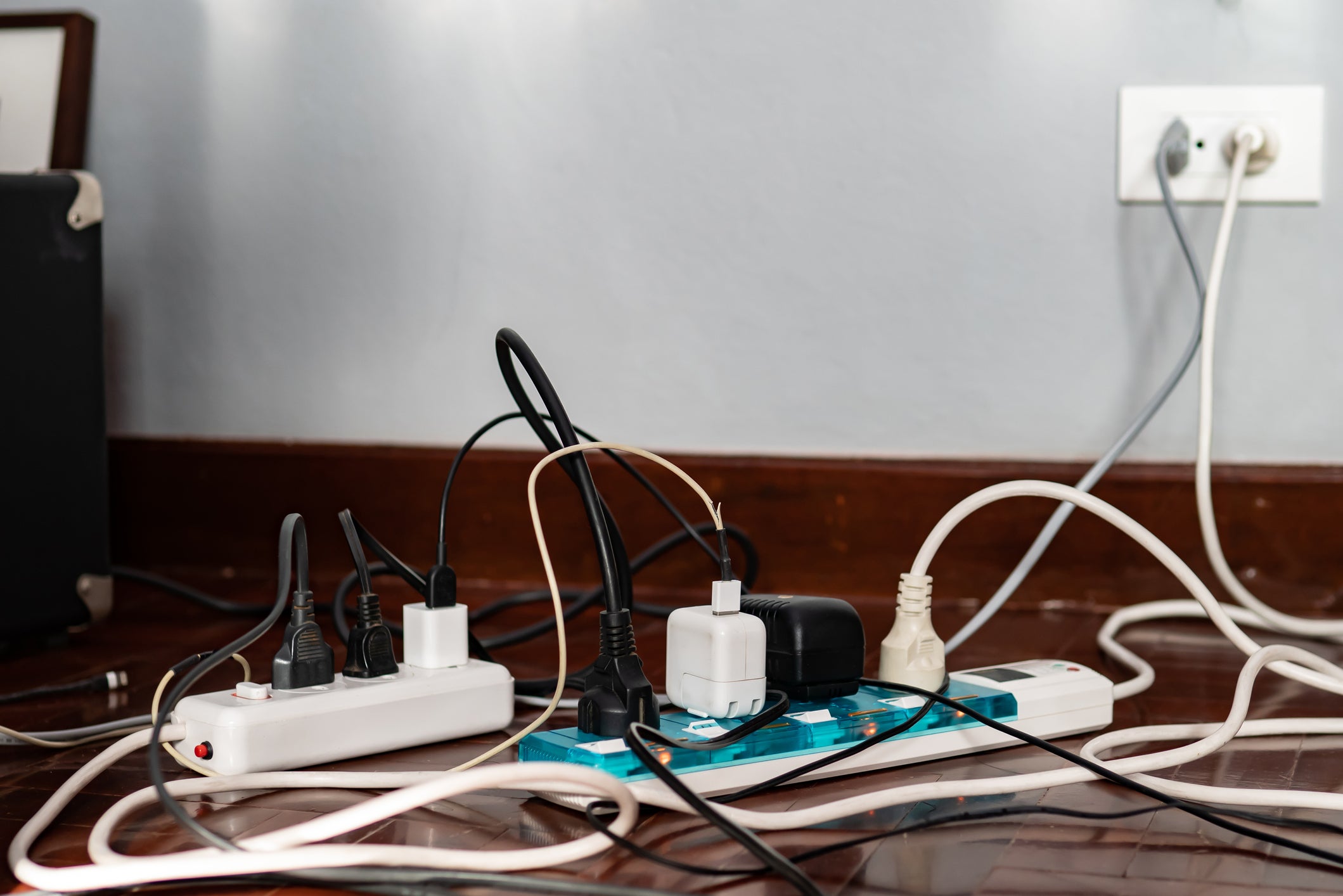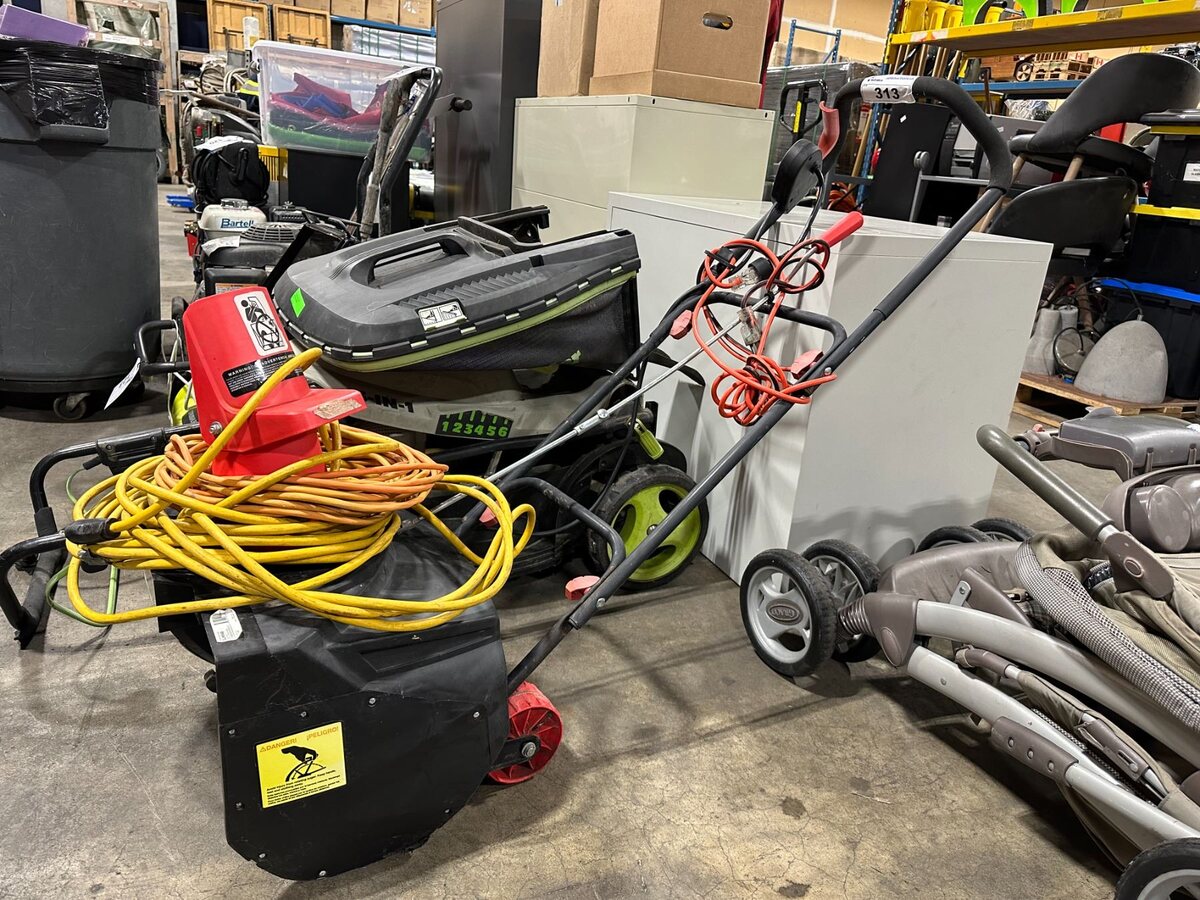Home>Home Maintenance>What Extension Cord Is Needed For An Air Conditioner
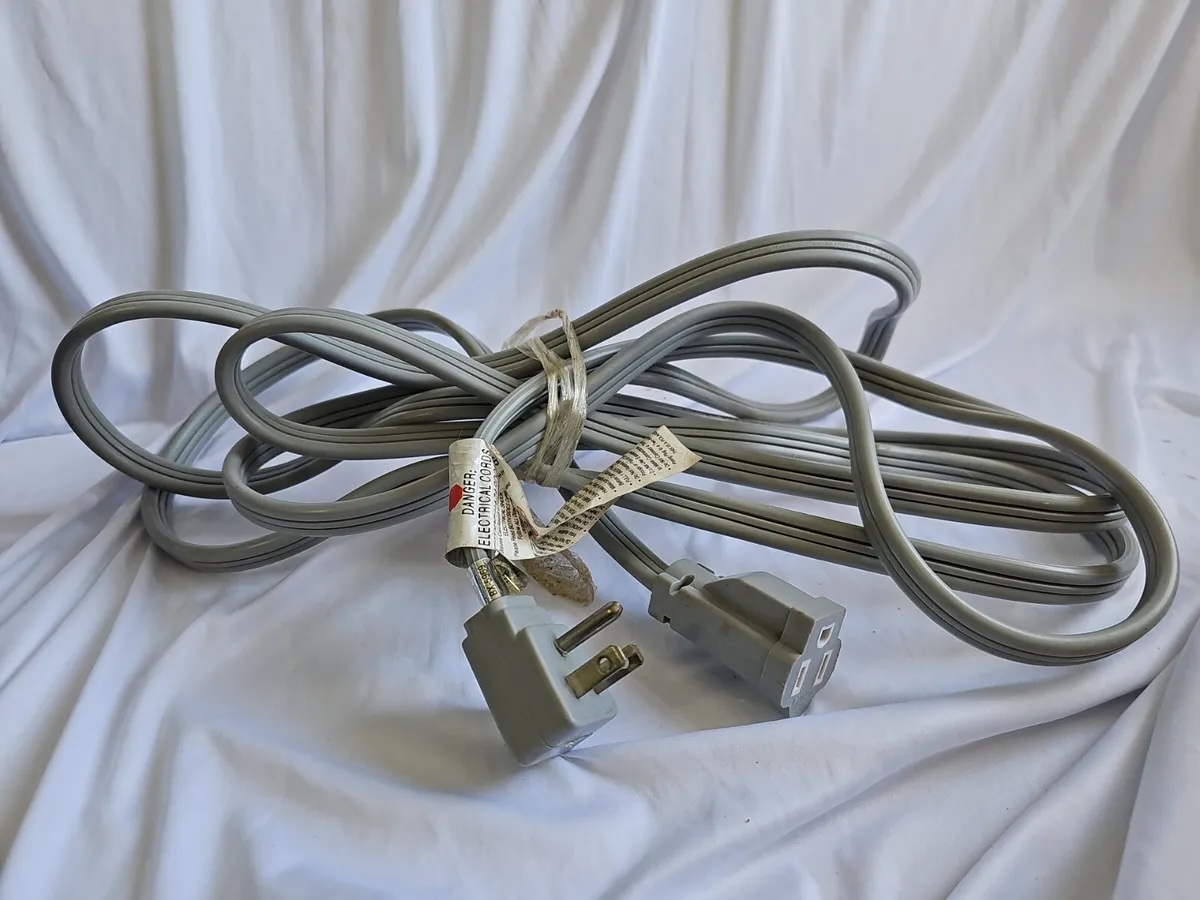

Home Maintenance
What Extension Cord Is Needed For An Air Conditioner
Modified: October 18, 2024
Find out the perfect extension cord required for your air conditioner with our helpful home maintenance guide. Don't miss out on essential tips!
(Many of the links in this article redirect to a specific reviewed product. Your purchase of these products through affiliate links helps to generate commission for Storables.com, at no extra cost. Learn more)
Introduction
When it comes to keeping our homes cool and comfortable during the hot summer months, air conditioners are a necessity. But what happens when you don’t have a power outlet conveniently located near your AC unit? This is where extension cords come into play. Choosing the right extension cord for your air conditioner is crucial for both safety and optimal performance.
In this article, we will discuss the factors you need to consider when selecting an extension cord for your air conditioner. We will explore the ampere rating, wire gauge, length of the cord, and the different types of extension cords available. Additionally, we will provide important safety precautions to follow to ensure the safe and efficient operation of your air conditioner.
Before we delve into the specifics, it is important to note that using the wrong extension cord for your air conditioner can result in overheating, electrical fires, or damage to your appliance. Always consult the manufacturer’s guidelines and specifications for your particular air conditioner model, as they may have specific requirements or recommendations for extension cords.
Now, let’s dive into the factors to consider when selecting the appropriate extension cord for your air conditioner.
Key Takeaways:
- Choose an extension cord with a higher ampere rating and suitable wire gauge to safely power your air conditioner, preventing overheating and electrical problems.
- Follow safety precautions, inspect cords regularly, and avoid overloading them to ensure a comfortable and secure environment for your home.
Factors to Consider
When choosing an extension cord for your air conditioner, several factors should be taken into consideration to ensure both the safety and efficiency of your appliance. These factors include the ampere rating, wire gauge, and the length of the extension cord.
Ampere Rating
The ampere rating, also known as the amp rating, refers to the amount of electrical current that the extension cord can safely handle. It is crucial to select an extension cord that has a higher ampere rating than the air conditioner requires. This ensures that the cord can handle the power load without overheating or causing electrical problems.
Check the user manual or the label on your air conditioner to determine its ampere rating. Match this rating with the ampere rating of the extension cord. It is generally recommended to use an extension cord with a rating of at least 15 amps for most residential air conditioners.
Wire Gauge
The wire gauge of an extension cord determines the thickness of the wires inside. Thicker wires have a lower gauge number and are capable of carrying more electrical current without significant resistance or voltage drop.
For air conditioners, it is recommended to use extension cords with a wire gauge of 12 or 14. A lower gauge number means a thicker wire, which can handle higher electrical loads. Thinner wires, such as those with a gauge of 16 or 18, are not suitable for air conditioners as they may cause overheating and voltage drop.
Length of Extension Cord
The length of the extension cord also plays a vital role in the performance of your air conditioner. Longer cords can result in voltage drop, causing the air conditioner to work less efficiently and potentially damaging the compressor.
As a general rule, it is best to use the shortest extension cord possible to minimize voltage drop. If you require a longer cord, choose one with a heavier wire gauge to compensate for the increased distance. Keep in mind that using a longer extension cord than necessary can introduce additional resistance, leading to reduced power efficiency.
Now that we have discussed the important factors to consider when selecting an extension cord for your air conditioner, let’s take a look at the different types of extension cords available in the market.
Ampere Rating
The ampere rating, also known as the amp rating, is a crucial factor to consider when selecting an extension cord for your air conditioner. This rating indicates the maximum amount of electrical current that the cord can safely handle without overheating or causing damage.
To determine the appropriate ampere rating for your extension cord, you need to check the user manual or the label on your air conditioner. The manufacturer will typically provide the amp rating required for optimal performance and safety. It is essential to match or exceed this rating when choosing an extension cord.
Most residential air conditioners have ampere ratings that range from 5 to 15 amps. Therefore, it is generally recommended to use an extension cord with a rating of at least 15 amps to accommodate the power load. Using an extension cord with a lower amp rating than what your air conditioner requires can lead to overheating of the cord, which poses a fire hazard.
When selecting an extension cord with the appropriate ampere rating, ensure that it is labeled as “suitable for air conditioners” or “heavy-duty.” These types of extension cords are specifically designed to handle the higher power demands of air conditioning units.
Keep in mind that the ampere rating of the extension cord should be higher than the ampere rating of your air conditioner. This allows for a safety margin, preventing the cord from operating at its maximum capacity and reducing the risk of overheating or electrical problems.
Furthermore, it is important to note that using multiple extension cords in series is not recommended. Each extension cord introduces additional resistance and can contribute to greater voltage drop, compromising the performance and efficiency of your air conditioner. Instead, choose a single, properly-rated extension cord that is long enough to reach the power outlet without the need for multiple cords.
In summary, selecting an extension cord with an appropriate ampere rating is crucial for the safe and efficient operation of your air conditioner. Always refer to the manufacturer’s guidelines and choose a cord with a higher amp rating than your air conditioner requires. This will ensure that the cord can handle the power load without overheating or causing electrical issues, providing you with a cool and comfortable home during the summer months.
Wire Gauge
When choosing an extension cord for your air conditioner, the wire gauge is another important consideration. The wire gauge refers to the thickness of the wires inside the cord and is identified by a numerical value. The lower the gauge number, the thicker the wire and the higher the electrical current it can safely carry.
For air conditioners, it is recommended to use extension cords with a wire gauge of 12 or 14. These wire sizes are capable of handling the higher electrical loads required by air conditioning units without significant resistance or voltage drop.
Using extension cords with a higher gauge number, such as 16 or 18, is not suitable for air conditioners. These cords have thinner wires that may not be able to safely carry the required current, resulting in overheating and potential damage to the cord or air conditioner.
Choosing an extension cord with the appropriate wire gauge ensures that the cord can efficiently deliver the necessary power to your air conditioner. Thicker wires have less resistance, which means there will be a smaller voltage drop along the length of the cord. This helps maintain the performance and efficiency of your air conditioner while reducing the risk of overheating or electrical problems.
It’s worth noting that some extension cords may indicate the wire gauge with a letter rating. For example, “S” stands for 12-gauge, “SJ” for 14-gauge, and “SJTW” for 16-gauge. Pay close attention to these indicators when selecting an extension cord.
In addition to the wire gauge, it’s essential to choose extension cords that are labeled as “suitable for air conditioners” or “heavy-duty.” These cords are designed to withstand the higher power demands of air conditioning units and provide the necessary safety measures.
Remember, using an extension cord with the wrong wire gauge can compromise the safety and performance of your air conditioner. Always follow the manufacturer’s guidelines and choose a cord with a suitable wire gauge to ensure the efficient and uninterrupted operation of your air conditioning system.
Length of Extension Cord
The length of the extension cord plays a crucial role in the performance and efficiency of your air conditioner. Using a cord that is too long can result in voltage drop, reduced power delivery, and potential damage to your appliance.
As a general rule, it’s best to use the shortest extension cord possible for your air conditioner. The longer the cord, the more resistance it introduces, which can lead to a decrease in voltage reaching the appliance. This voltage drop can cause the air conditioner to work less efficiently, resulting in decreased cooling performance and increased energy consumption.
If it’s necessary to use an extension cord due to the distance between your air conditioner and the power outlet, it’s important to select a cord with a heavier wire gauge. Thicker wires have less resistance and can compensate for the increased distance, allowing for better voltage transmission and minimizing potential power loss.
When choosing the appropriate length of the extension cord, consider the location of your air conditioner and the nearest power outlet. Measure the distance accurately and select a cord that matches or exceeds that length. Avoid using excessively long extension cords as they can pose a greater risk of voltage drop and potential hazards.
If you find yourself in a situation where the power outlet is far away from the air conditioner, consider having a new outlet installed by a qualified electrician. This eliminates the need for an extension cord and ensures a direct and efficient power supply to your air conditioner.
It’s important to note that using multiple extension cords or plugging multiple appliances into the same extension cord can also contribute to voltage drop. Try to only connect the air conditioner to a dedicated extension cord without any other devices connected to it. This ensures that the full power load is directed to your air conditioner without any interference.
In summary, choosing the right length of the extension cord is crucial for the optimal operation of your air conditioner. Keep the cord as short as possible to minimize voltage drop and consider using a heavier wire gauge to compensate for longer distances. By doing so, you can ensure that your air conditioner receives the necessary power without compromising its performance or risking damage to the appliance.
Types of Extension Cords
When it comes to selecting an extension cord for your air conditioner, there are different types available, each with its own features and suitable applications. Here are some common types of extension cords that you may come across:
Read more: What Size Extension Cord Do I Need
Standard Extension Cords
The standard extension cord, also known as a general-purpose extension cord, is the most commonly used type. These cords are versatile and can be used for a variety of household appliances, including air conditioners. They typically have a maximum ampere rating of 15 amps and come in different wire gauges such as 14 or 12. Standard extension cords are readily available and come in various lengths to suit your needs.
Heavy-Duty Extension Cords
Heavy-duty extension cords are built to withstand higher power demands and provide increased durability. They are suitable for powering larger appliances, including air conditioners with higher ampere ratings. These cords have a thicker wire gauge, such as 10 or 8, to handle the heavier loads without overheating or voltage drop. Heavy-duty extension cords are ideal for professional use or situations where a robust power supply is required.
Outdoor Extension Cords
If you need to power your air conditioner outdoors, such as in a patio or garage, an outdoor extension cord is essential. Outdoor extension cords are designed to withstand the elements and provide proper insulation and protection against moisture and UV rays. They are typically equipped with weather-resistant features, including reinforced jackets and water-resistant connectors. When using an extension cord outdoors, ensure that it is labeled for outdoor use to prevent any potential electrical hazards.
Locking Extension Cords
Locking extension cords, also known as twist-lock extension cords, feature a locking mechanism that securely connects the cord to the appliance or power source. This type of cord is often used in commercial or industrial settings where a secure and reliable connection is required. Locking extension cords come in various ampere ratings and wire gauges to suit different power demands.
Read more: What Electrical Cord Do I Need For My RV
Appliance-Specific Extension Cords
Some air conditioner manufacturers may offer appliance-specific extension cords that are designed to work compatibly with their products. These cords are tailored to the specific ampere rating and power requirements of the appliance, ensuring optimal performance and safety. It is advisable to check with the manufacturer or refer to the product documentation to see if they recommend using their proprietary extension cords.
When choosing an extension cord for your air conditioner, ensure that it is compatible with the power requirements of your appliance. Check the ampere rating, wire gauge, and any specific guidelines provided by the manufacturer to make an informed decision.
Now that you are aware of the different types of extension cords available, let’s move on to the safety precautions you should follow when using extension cords with your air conditioner.
Safety Precautions
Using extension cords with your air conditioner requires careful attention to safety precautions to prevent electrical hazards and ensure the well-being of your home and family. Here are some important safety measures to keep in mind:
Choose the Right Cord
Always select an extension cord that is suitable for air conditioners and has the appropriate ampere rating and wire gauge. Using the wrong cord can lead to overheating, voltage drop, and potential damage to your appliance or even cause a fire.
Inspect the Cord Regularly
Before each use, thoroughly examine the extension cord for any signs of wear, frayed wires, or damage. If you notice any issues, do not use the cord and replace it immediately. Using a damaged cord can pose serious safety risks.
Avoid Overloading the Cord
Never overload the extension cord by connecting multiple appliances or exceeding its recommended ampere rating. Overloading can lead to overheating and create a fire hazard. Each extension cord has a maximum power load it can handle, so be mindful of the devices you connect to it.
Maintain Proper Ventilation
When using extension cords with air conditioners, ensure that the cords are not placed in areas where they can be easily damaged or tripped over. Keep the cords away from heat sources, water, or damp areas to prevent accidents and potential electrical faults.
Avoid Tightly Coiling the Cord
Avoid tightly coiling or bending the extension cord, as this can cause internal damage or create a risk of overheating. Instead, loosely coil the cord when storing it to maintain its integrity and prevent potential damage to the wires.
Do Not Run Cords Under Carpets or Furniture
Running extension cords under carpets or furniture can cause them to overheat due to restricted airflow and potential damage from heavy objects. Keep cords in open areas where they can be easily accessed and inspected.
Unplug Properly
When unplugging the air conditioner or disconnecting the extension cord, ensure that you pull the plug itself and not the cord. Yanking on the cord can cause damage to the cord, plug, or outlet.
Use Ground-Fault Circuit Interrupters (GFCIs)
In outdoor settings or areas where water may be present, it is advisable to use extension cords with built-in GFCIs. These devices provide an extra layer of protection against electrical shock if there is a fault or exposure to water.
Follow Manufacturer’s Guidelines
Always refer to the manufacturer’s instructions and guidelines for your air conditioner, as they may provide specific recommendations or restrictions regarding the use of extension cords. Follow these guidelines to maintain the safety and performance of your appliance.
By following these safety precautions, you can ensure the proper use of extension cords with your air conditioner, providing a comfortable and secure environment for your home.
Conclusion
Choosing the right extension cord for your air conditioner is essential for both safety and optimal performance. Consider the ampere rating, wire gauge, and length of the cord when making your selection. Using an extension cord with a higher ampere rating and suitable wire gauge ensures that it can safely handle the power load required by your air conditioner, preventing overheating or electrical problems.
Remember to choose a cord that is appropriate for outdoor use if needed, and consider using heavy-duty or locking extension cords for more demanding applications. Additionally, inspect the cords regularly for any signs of damage and avoid overloading them with multiple appliances.
Follow safety precautions such as maintaining proper ventilation, avoiding tight coilings, and not running cords under carpets or furniture. Use grounded power outlets whenever possible and unplug cords carefully by pulling the plug rather than the cord itself. Consider using extension cords with built-in GFCIs in outdoor or wet areas for added protection against electrical hazards.
Lastly, always consult the manufacturer’s guidelines and specifications for your air conditioner to ensure compliance and safety. They may have specific recommendations or restrictions regarding the use of extension cords that you should follow.
By taking these factors and precautions into account, you can select the right extension cord for your air conditioner and enjoy a cool and comfortable home without compromising safety or power delivery. Stay informed, make informed choices, and prioritize safety to keep your air conditioner and your home functioning smoothly.
Frequently Asked Questions about What Extension Cord Is Needed For An Air Conditioner
Was this page helpful?
At Storables.com, we guarantee accurate and reliable information. Our content, validated by Expert Board Contributors, is crafted following stringent Editorial Policies. We're committed to providing you with well-researched, expert-backed insights for all your informational needs.
